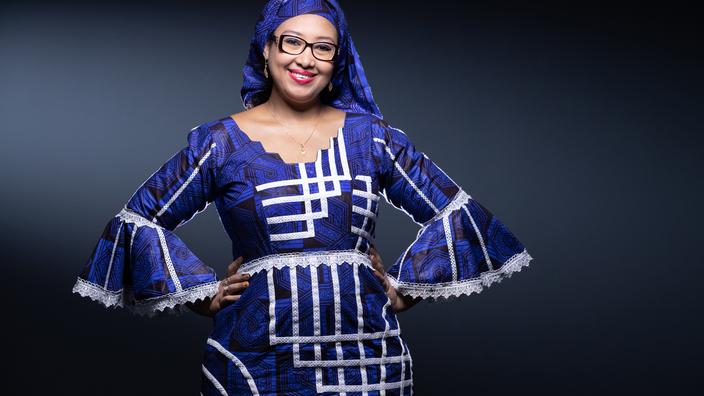She created a surprise by becoming one of the four finalists for Goncourt, the most prestigious French literary prize: the Cameroonian novelist Djaïli Amadou Amal, whose book L
es Impatientes
explores forced marriage and polygamy, wants to bring "
the voice women of the Sahel
”.
"
Not for a second
" had she imagined she could win the glorious sesame.
But since the announcement of the finalists, the 45-year-old novelist begins to dream: "
Bringing Goncourt back to Cameroon would be something incredible, almost unexpected,
" she told AFP.
Unexpected as his presence among the finalists, that no one had anticipated.
But also a little unexpected for a writer from sub-Saharan Africa to win the most coveted prize in French literary circles, which would be a first.
Her novel,
Les Impatientes
(editions. Emmanuelle Collas), also finalist of the Goncourt des lycéens, gives voice to three
Fulani
women who are constantly assailed "
Munyal
", patience in Fulani, to make them accept their fate and its induced violence, forced marriage and polygamy.
Married at 17
"
I am an African woman, I live in Cameroon and therefore I decided to speak about this society from the point of view of women because we do not give enough voice to women and especially not in the Sahel
", insists- she.
Born in the Cameroonian region of Maroua (far north) of an Egyptian mother and a Cameroonian father, Djaïli Amadou Amal is a fighter.
Married at the age of 17 to a fifty-something she did not know, she manages, five years later and in difficulty, to divorce.
Read also: Prix Goncourt: discover the four finalists
Ten years later, she remarried but was the victim of domestic violence.
As she manages to escape this man's grip, he kidnaps his two daughters to bring her back.
At the same time, she hangs on to complete a BTS in management, the only studies her husband allowed her to take, although she admits that she would have preferred to study literature.
Her salvation, she will find it in literature.
First reading, which allows him to "
escape
".
She devours the books of the Senegalese author Mariama Bâ or the Malian Seydou Badian Kouyaté, before taking up the pen, to be able to "
say what (she) feels
".
Patriarchal society
Her very first text, however, she decided not to publish it.
In 2010, she ended up taking the
plunge
with
Walaande, the art of sharing a husband
, which tells the endless wait of four women married to the same man.
The book is a bookstore success in Cameroon where it rose to prominence.
In 2012, she was invited to the Paris Book Fair.
In Les
Impatientes
, the novelist describes, in a simple style and punctuated by short sentences, a patriarchal society that breaks women.
And to list: “
early and forced marriage as one of the first forms of violence, marital rape that we do not want to recognize as such, physical violence and finally polygamy as moral violence.
"
The novelist also endeavors to show to what extent women, first victims, unconsciously reproduce this violence, whether in the context of excision or forced marriage or the role of the mother "in persuasion. and the harassment ”of the young girl is important, according to her.
"
These women do not act thus out of spite but because they have only known this system that they have the role of reproducing
", underlines the novelist, for whom it is necessary a "
awareness of women
".
To help this awareness, in 2012 she created the Association Femmes du Sahel, which works in favor of the education of girls in the region.
Because if she says she is "
lucky to have gone to school
" and to have been able to do a BTS, "
the reality is quite different for thousands of little girls in the Sahel
".

